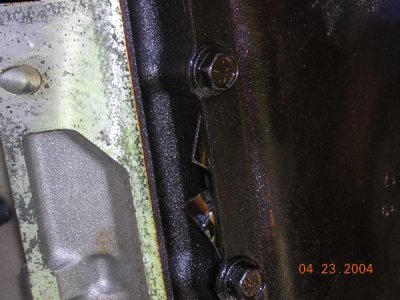What I know:
1. Car manufacturers are starting to put synthetic and recommending only synthetic for their new cars.
2. Conventional oils have "thickeners" added that give it its multigrade properites. Since synthetic oils are more stable, they don't require these thickeners. These thickeners are made of very large molecules which can be easily sheared - this affects the stability of conventional oil. The bigger the difference between the low and high viscosity rating, the more thickeners you use.
3. Running 20/50 will probably SLOW down your car, not give you more HP. For pure performance, you want to run the thinnest oil you can while still maintaining around 220 degrees oil temp. Oil starts to break down around 300 degreess. I run 20/50 Redline Oil in my SER because it runs very hot under road racing conditions so I need the heat protection of the 20/50.
4. Your engine doesn't run at just one temp - there are parts of the car where friction and heat is much higher than your average engine temp. This is where oils breakdown. Synthetic oils, because they don't have to use thickeners. This is probably why BMW recommends such long change intervals for their cars.
If oil didn't breakdown, why would we need to change it every X miles? Since synthetics don't breakdown as quickly, you can technically go longer between oil changes offsetting some of the higher cost of synthetic oils.
5. Oil is a mix of base stocks, detergents, "thickeners", and anti-wear ingredients.
6. Synthetic oil tends to have more detergents (maybe because they don't need thickeners) and keep your engine cleaner.
7. Race oils don't have detergents to help suspend combustion byproducts and keep them from forming deposits in your engine. Fewer detergents = better lubrication properties (more oil, less cleaner). Of course, they expect you to change the oil after every race.
8. If your NSX is being pushed on a road course, it's probably not maintaining ~180 degree oil temps.
9. Many new cars (new F150, new Hondas) run 5/20 oil. Better mileage and lower emissions (not sure how this helps emissions).
10. Saying conventional oil is just as good as synthetic is like saying that push rods are just as good as overhead cams. Push rods get the job done but by any technical measure, overhead cams are better and you just seem like an old fart if you argue for push rods.

I run synthetic in my cars - my Infiniti FX45 is synth from the factory.







